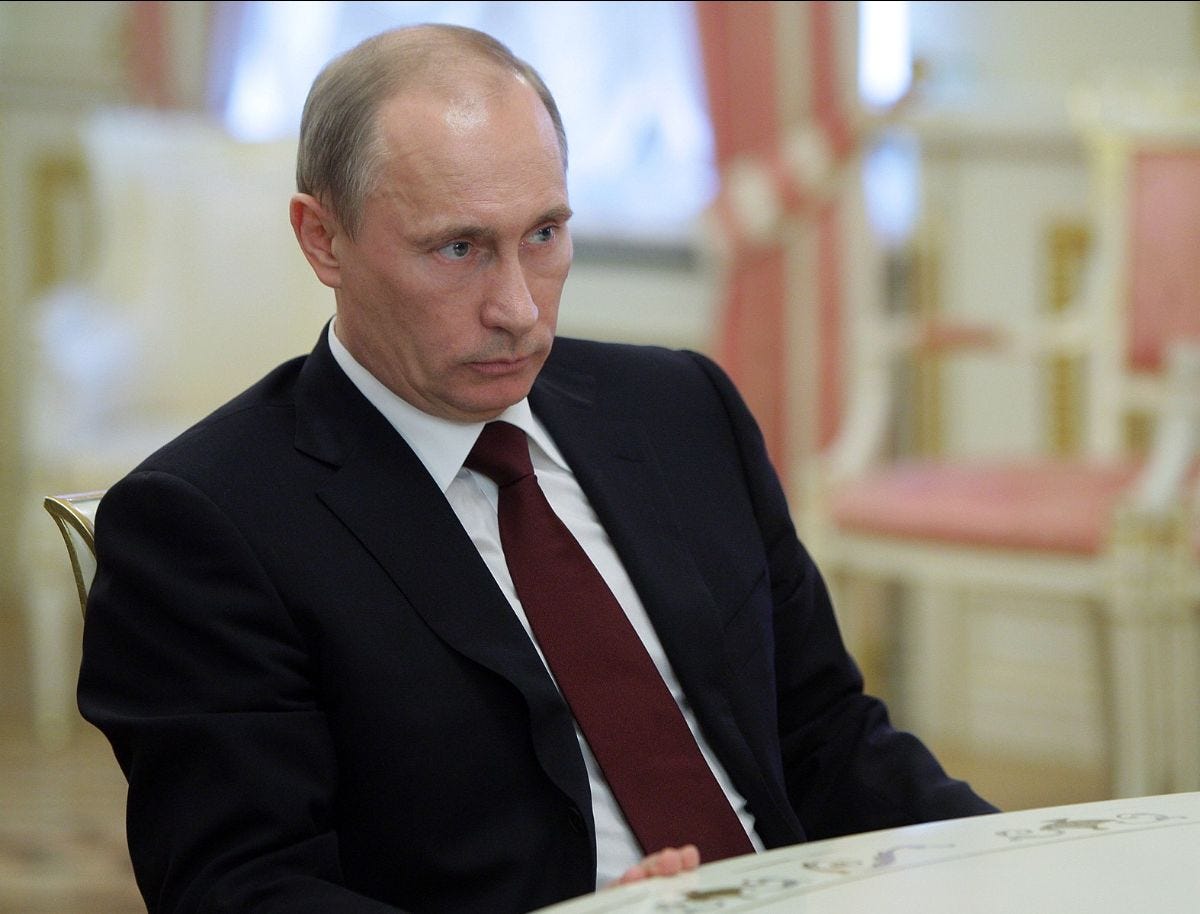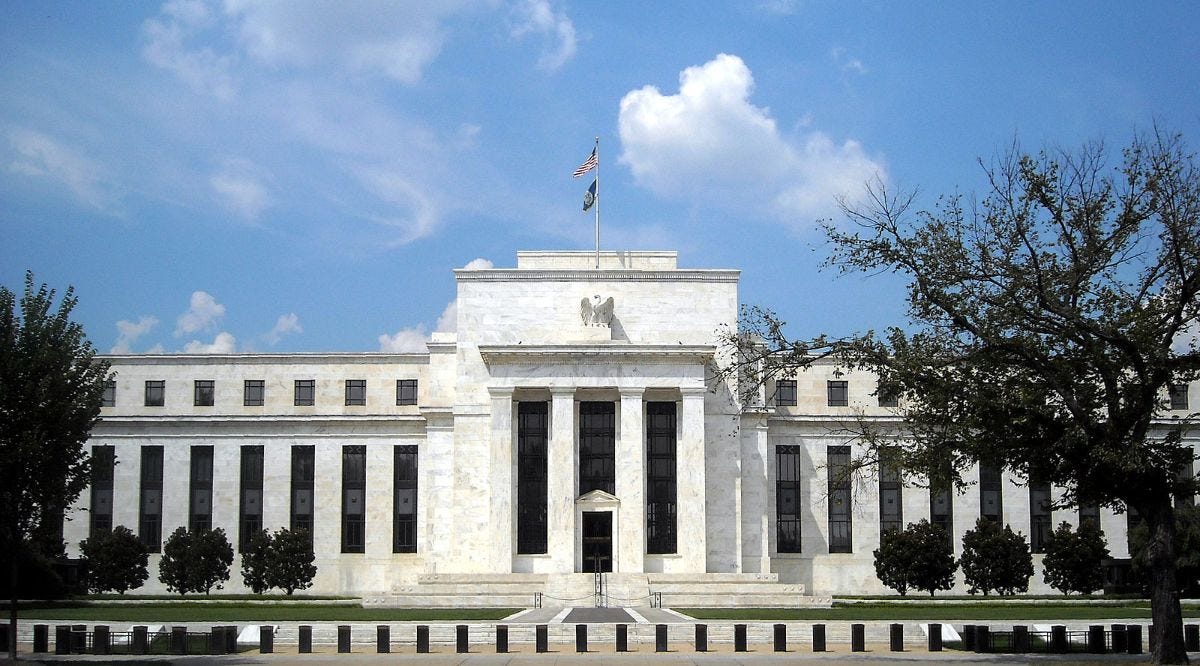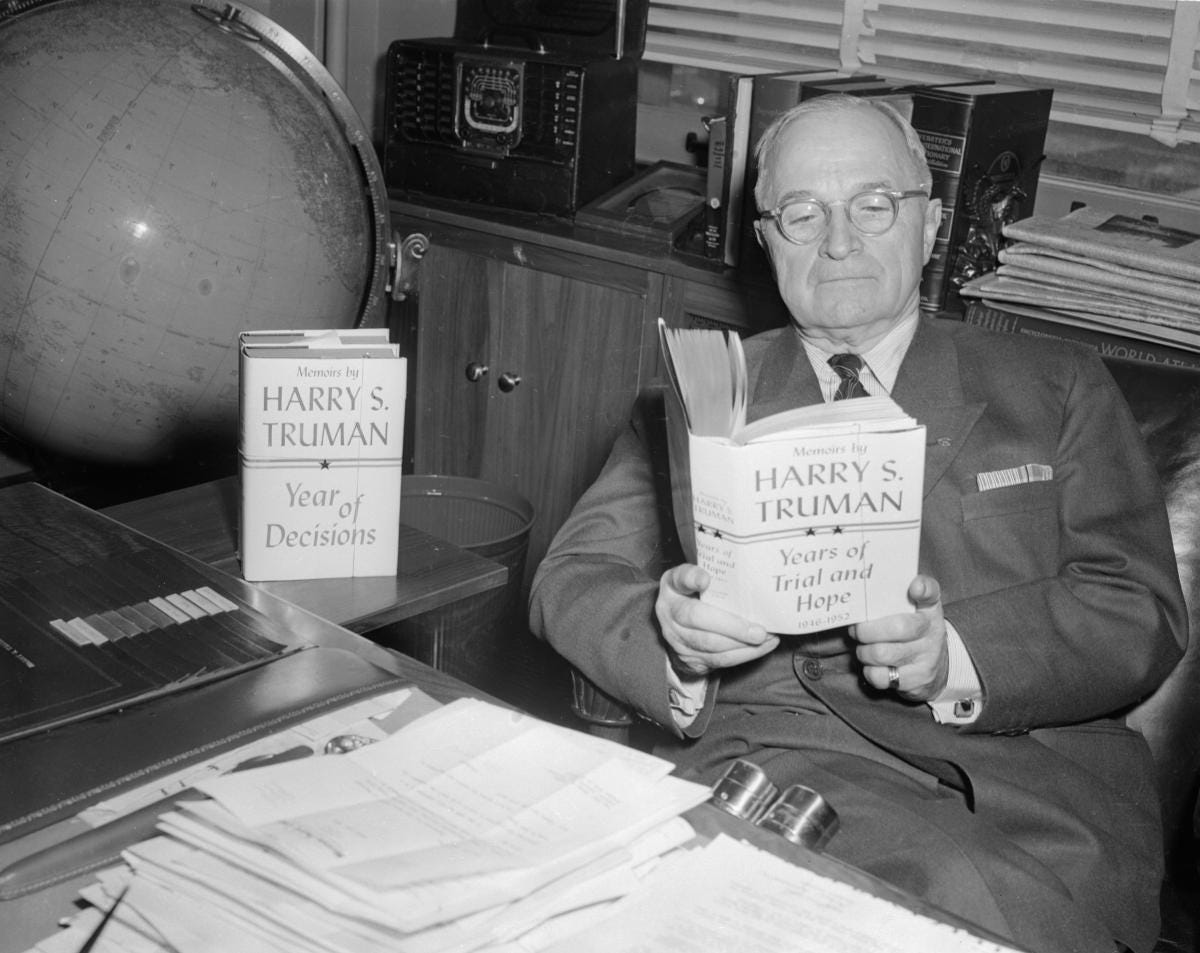Biden, Putin agree to summit “in principle”
Good morning! It’s Monday, February 21, 2022. Election Day 2022 is 260 days away. Election Day 2024 is 988 days away.
Happy Presidents’ Day! As you can imagine, it’s a favorite holiday over here at Wake Up To Politics. Later down in the newsletter, I’ll celebrate by sharing some of my top book recommendations about the U.S. presidents.
But first, here’s what you should know about the latest news from Ukraine:
Biden, Putin may meet as U.S. accuses Russia of moving towards war
The weekend began with a grim warning from President Joe Biden.
“We have reason to believe the Russian forces are planning to, intend to, attack Ukraine in the coming week, in the coming days,” the president declared on Friday afternoon.
By Sunday evening, however, a glimmer of hope arrived that diplomatic efforts may yet win out.
The White House announced that Biden had agreed “in principle” to a summit with Russian President Vladimir Putin. The possible meeting was brokered by French President Emmanuel Macron, who spoke with Biden once on Sunday and Putin twice.
According to Macron’s office, both Biden and Putin tentatively signed off on the summit — although a Kremlin spokesperson said this morning that there were “no concrete plans” for one to be held yet.
The only meeting agreed to be by both sides so far is one set for Thursday between Secretary of State Antony Blinken and Russian Foreign Minister Sergey Lavrov, during which the details of a Biden-Putin summit are expected to be worked out.
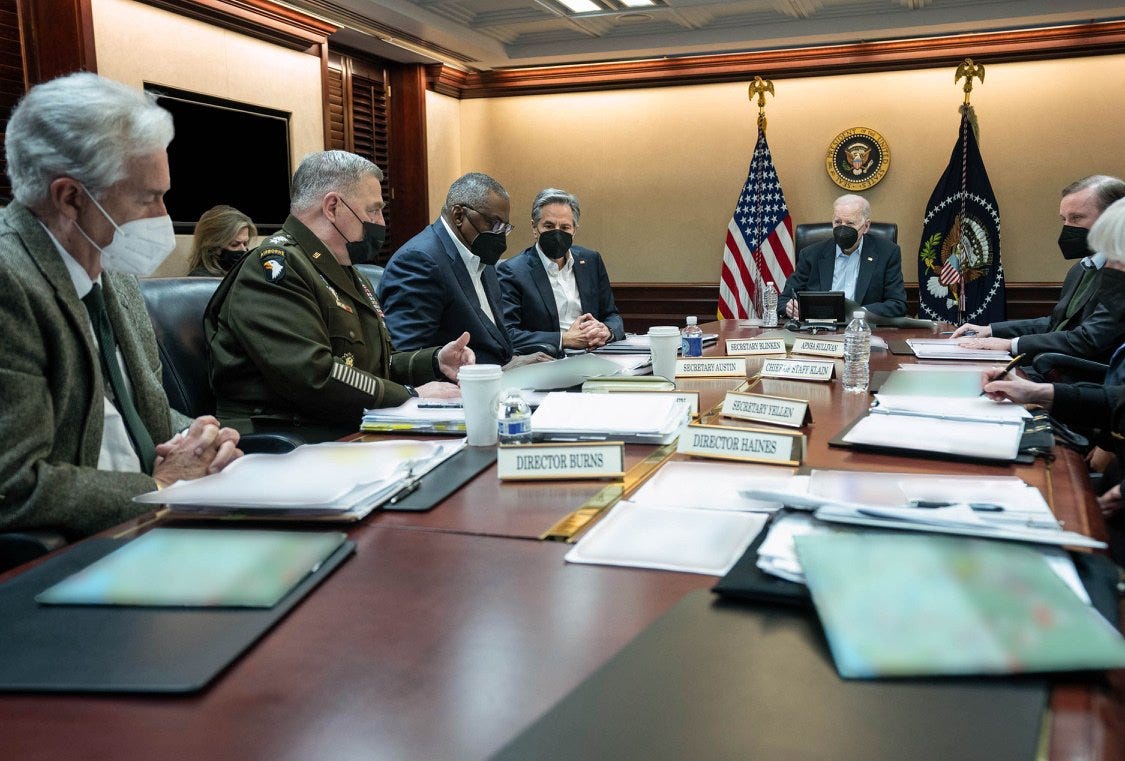
U.S. officials said a summit would only take place if Russia refrains from attacking Ukraine, although they continued to warn an invasion was expected.
“All signs look like President Putin and the Russians are proceeding with a plan to execute a major military invasion of Ukraine,” White House national security adviser Jake Sullivan told ABC News this morning.
According to the Washington Post and other news outlets, such statements from Biden and his top lieutenants were based on U.S. intelligence that Russian commanders had received an order “to proceed with a full-scale attack” and were “taking steps to implement it.”
The latest reports from the ground certainly point towards an escalation.
Shelling continued in the Donetsk and Luhansk regions — two Ukrainian enclaves which have been controlled by Russian-backed separatists since 2014 — over the weekend, killing two Ukrainian soldiers and wounding three teachers at a kindergarten.
The separatist leaders also issued a call for their supporters to fully mobilize against the Ukrainian government, warning that Kyiv was planning an attack against them. But no evidence has emerged to support those claims, which officials in Ukraine and the U.S. say amount to a “false flag” that the Kremlin will use as pretext to launch an invasion.
According to the New York Times, residents in the separatist regions said there was shelling from both sides, but reporters at the scenes only “witnessed shelling from separatists and saw no return fire from the Ukrainian forces.”
Meanwhile, Russia announced that about 30,000 troops sent to Belarus for joint military exercises will remain there indefinitely, increasing fears of an invasion. Russia reportedly has around 190,000 stationed on three sides of Ukraine.
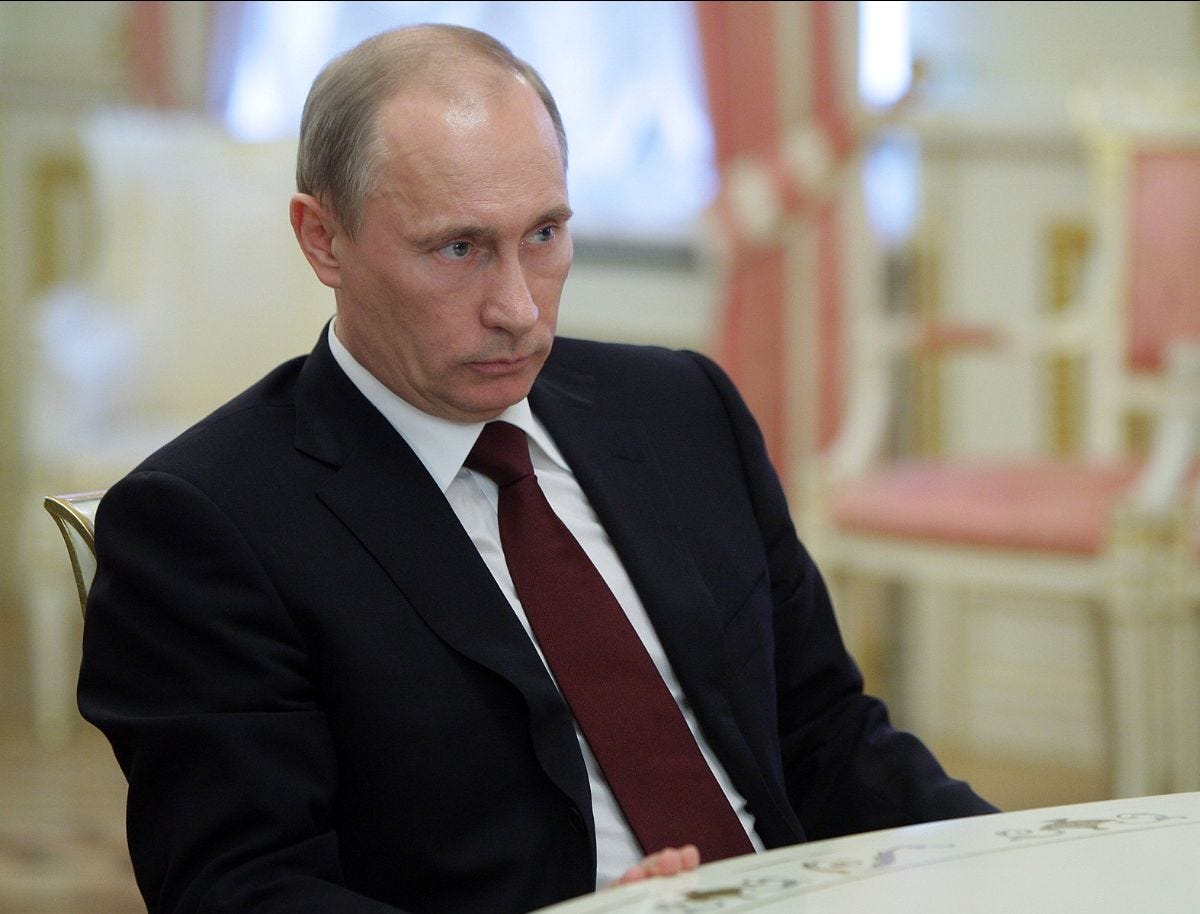
The U.S. has also begun warning not only that Russia is planning an invasion, but a particularly violent one.
According to the Times, senior American officials now view the “worst-case scenario” as the most likely one: that Putin will attempt to take Ukraine in a single, massive blow — rather than a series of smaller attacks. Such an invasion “could provoke the largest, most violent battle for European territory since the Nazi surrender in 1945,” the Times added.
The Times reported that officials have described such an invasion as consisting of “a week or two of terror, constant rocket attacks and street fighting and, ultimately, a hunt for anyone who supported the democratically elected government of President Volodymyr Zelensky.”
According to the Washington Post, the U.S. has sent a letter to the United Nations about the “widespread human suffering” being planned by Russia in Ukraine, revealing intelligence that suggested the Russians are compiling “lists of identified Ukrainians to be killed or sent to camps following a military occupation.”
Throughout the standoff, the U.S. has been notably open about disclosing intelligence reports broadcasting Putin’s next move, an attempt to catch the longtime Russian leader off-guard.
Officials now say the events those intelligence reports have predicted are beginning to transpire. “It certainly looks like everything we said was likely to occur in the leadup to the actual invasion is happening,” Secretary of State Blinken said on Sunday.
Economics Roundup
Each morning, WUTP’s team of contributors rotate to offer a briefing on the latest news in a different policy area. It’s Monday, so Davis Giangiulio is here with a look at the economic news to know this week:
Retail sales rose 3.8% in January, despite rising inflation. The report released Wednesday by the Department of Commerce comes after December’s 2.5% decline, and it beat expectations of a 2.1% jump. While the figures are not adjusted for inflation, the broad consensus is that the rise in spending is real and is coming despite consumers confronting higher prices.
The numbers did not seem to suffer from January’s Omicron-fueled Covid surge, although that could be because retail sales reports mostly reflect spending on goods, not services (which are more likely to be disrupted by Covid). Food and drink establishments, the only service measured in the report, did experience a decline in January.
The higher spending figures will make the Federal Reserve’s job harder as it debates raising interest rates to combat inflation. With consumers spending so much, it’ll mean hikes in interest rates won’t slow down the economy as fast as they may like. That means they would have to raise rates faster and higher than they previously were planning if they truly want to stop the economy from growing too fast.
After a scandal last fall, the Fed has adopted new trading rules for its officials. The rules ban officials and their immediate family members from holding individual stocks or bonds, along with cryptocurrencies or foreign currencies. The Fed in a statement said the rules “aim to support public confidence in the impartiality and integrity of the committee’s work by guarding against even the appearance of any conflict of interest.”
It all comes after it was discovered last year that two Fed officials made large financial transactions in 2020, despite being involved in the Fed’s economic response to the pandemic. The scandal led to their resignations, complicated Chair Jay Powell’s renomination bid, and now to these new restrictions. Congress is considering imposing similar trading restrictions on itself.
3.7 million children fell into poverty in January, according to a new report. Conducted by the Center on Poverty & Social Policy at Columbia University, the data reveals the monthly child poverty rate measured 17% in January, up from 12.1% in December. That was even worse for Black and Latino children, who experienced a 5.9% and 7.1% jump in their rates respectively.
It comes after the expanded monthly child tax credit expired at the end of 2021. The report concludes “it is likely that monthly child poverty rates could be persistently high through the rest of 2022 absent the continuation of an expanded Child Tax Credit, further policy interventions, or strong improvements in labor market outcomes.”
Book Club
In honor of Presidents’ Day, I’m sharing some of my all-time favorite books about the American presidency. Do you have a recommendation I missed? Email me and I might include it in tomorrow’s newsletter (and add it to my list to read next!)
Favorite book on the creation of the presidency: “Mr. President: How and Why the Founders Created a Chief Executive” by Ray Raphael
Favorite book on a presidential campaign: “What It Takes: The Way to the White House” by Richard Ben Cramer
Favorite book on a presidential assassination: “Destiny of the Republic: A Tale of Madness, Medicine and the Murder of a President” by Candice Millard
Favorite book on former presidents: “The Presidents Club: Inside the World's Most Exclusive Fraternity” by Nancy Gibbs and Michael Duffy
Favorite presidential travelogue: “Land of Lincoln: Adventures in Abe’s America” by Andrew Ferguson
Favorite presidential encyclopedia: “Facts About the Presidents” by H.W. Wilson and Michael J. O’Neal
Favorite book about presidential books: “Author in Chief: The Untold Story of Our Presidents and the Books They Wrote” by Craig Fehrman
Daybook
All times Eastern.
President Joe Biden has no events on his public schedule today. According to the White House, Biden was originally planning to travel to his home in Wilmington, Delaware, for Presidents’ Day due to a “family-related issue” — but the trip was canceled, so he will remain in Washington, D.C.
The House and Senate are both on recess.
The Supreme Court is not in session.
That’s it for today. If you enjoy Wake Up To Politics, it’s always appreciated if you donate to support the newsletter or buy some merch. Or if you tell your friends and family to sign up at wakeuptopolitics.com.
If you have any questions or feedback, feel free to email me: my inbox is always open.
Thanks for waking up to politics! Have a great day.
— Gabe



